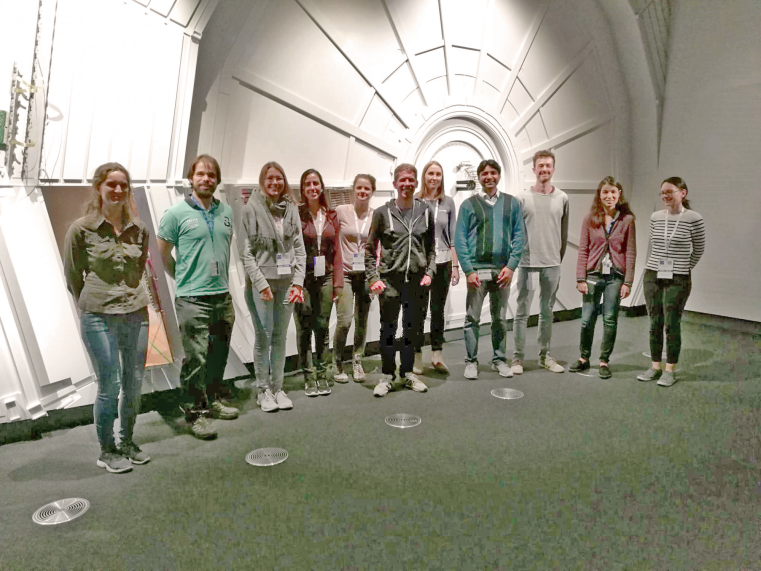The University of Münster regards equal opportunities and gender equality as a strategically important goal in the sense of an equal consideration of the different circumstances of men and women in the areas of teaching, research and career development.The equal opportunities policy of WWU is firmly embodied as a voluntary agreement in the mission statement of the university and the specially developed gender concept. The WWU gender equality policies have been awarded with a certificate of a family-friendly university by the “Beruf-und-Familie” gGmbH (job-and-family) of the Hertie Foundation and the Total E-Quality certificate sponsored by the Federal Ministry for Family Affairs, Senior Citizen, Women and Youth. The university has achieved, as of 2013, phase 4 in the implementation of the research-orientated equal opportunities DFG standards.
Equal opportunities at the Physics Department
The Physics Department of the University of Münster has developed a specific gender equality plan for the coming years, aiming at:
- increasing the interest in studying physics among female high-school students;
- supporting female undergraduate students;
- helping career development for women in physics;
- women- and family-friendly hiring policies.
The implemented measures involve, among others:
- mentoring programmes for female physics undergraduates and young female researchers;
- events for female high-school students within the MExLab Physics (Münster Experimentation Laboratory for Physics) or Girl’s Day initiatives;
- support during pregnancy and for parents of small children.
Gender equality actions within the Research Training Group
The proposed actions intend to strengthen and supplement the gender equality measures already existing at the Physics Department and at the University.
- Balance of family life and scientific career:
Flexible work hours and part-time solutions for RTG-members with family. Coverage for additional childcare expenses and support for self-organized childcare (e.g. rooms) during RTG-related events (e.g. conferences and workshops), periods of intense work outside of standard hours or school holidays.
- Underrepresentation of female undergraduate physics students:
Particle physics masterclasses and workshops (e.g. integrated into the departmental MExLab and Girl’s Day programs), addressed specifically to female high-school students and presented mainly by female RTG members.
- Lack of role models for young female physicists:
25% of all invited RTG lectures/seminars and at least one course during the RTG Graduate Days given by a distinguished female physicists.
- Limited offer of coaching events focused on succeeding in a male-dominated academia:
Funding for female RTG-members to take part in special training and mentoring events focused on presentation, networking and leadership skills.
- Low awereness of gender inequality among young physicists:
Exchange of experiences on career options in physics, work and (family) life balance with female speakers in the RTG Colloquium ("Students/Young Scientists Pre-Colloquium Coffee"). Discussion on the topic of gender inequality during RTG Graduate Days led by an external senior female physicist.
Gender Commission: The equal opportunity activities are coordinated by Jun.-Prof. Dr. Anna Kulesza and PD Dr. Christian Klein-Bösing, together with the Gender Officer of the Department of Physics, Prof. Dr. Cornelia Denz, and the Gender Office of the Department (Sybille Niemeier).
Useful links


